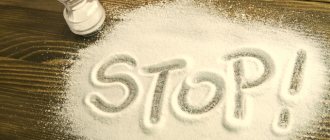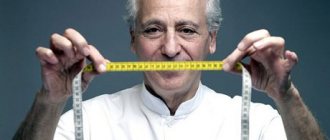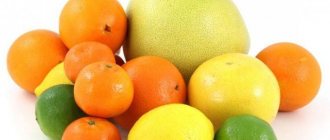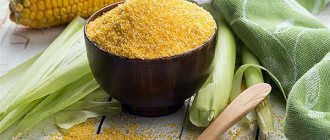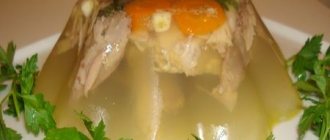Many young girls who are pregnant have not even heard of the fact that there is a salt-free diet for pregnant women. Most pregnant women have problems with the kidneys, since they are under a lot of stress and do not function fully, which causes swelling, which leads to serious consequences. In order to avoid unnecessary problems during pregnancy, a salt-free diet was developed.
Many pregnant women limit their fluid intake, they believe that this can lead to swelling. They don’t even think that ordinary table salt can lead to this. Salt retains fluid in the body and disrupts kidney function. Doctors diagnose most pregnant girls with gestosis - this is the result of swelling from excessive salt consumption, so most expectant mothers end up in the pathological department, although this disease can be avoided by adhering to a salt-free diet. A salt-free diet during pregnancy is based on eliminating salt from the diet, as well as replacing it with lemon juice, herbs and other various seasonings so that the food does not seem bland. In order to adhere to this diet, you do not have to give up your favorite foods, you just need to remove salt from your diet, since it is already contained in all foods.
How salt affects the body
The human body's salt requirement is two grams per day, but these days the average person eats up to twenty grams of salt in one day, leading to health complications such as:
- Brain dysfunction. Since an excess of salt can cause overstrain in the brain due to damage to the arteries.
- Violation of the heart. Since high salt intake may cause pain in the chest area, the heart will lack oxygen - this can lead to a heart attack.
- The kidneys can also be damaged due to high salt intake, as they remove excess fluid from the body, and salt prevents this. As a result, large amounts of fluid accumulate in the body, which in most cases leads to kidney disease or kidney failure.
- Salt also has a great effect on arteries. Arteries carry oxygenated blood to all human organs. When salt is consumed in excess, arteries become clogged and ruptured, preventing blood flow to human organs. People who consume large amounts of salt have increased blood pressure and may develop hypertension.
Excessive salt intake can lead to salt fever. A person’s body temperature begins to rise, which leads to uncontrollable thirst, blood pressure rises, and cramps begin throughout the body. In this case, you must urgently seek medical help.
III trimester
The third trimester is best suited for a salt-free diet during pregnancy - the period of edema, excess weight gain and decreased mobility due to the discomfort caused by a growing belly. Of course, these are pleasant inconveniences, but you cannot forget about your own health (the better for mom, the better for the child!). Refusal of salt will allow you to get rid of excess moisture, your legs will stop buzzing and hurting, your fingers will be less swollen, and your face will return to a healthy, non-edematous appearance. And one more positive point - reasonable salt restriction in the third trimester reduces the risk of deep stretch marks and eases labor pains.
What foods should you avoid?
- Avoid drinking packaged drinks. They contain a high content of not only salt, but also various other preservatives. Manufacturers add these substances at times for long-term storage. Such drinks should be replaced with natural juices or compotes. Plain water or herbal tea are also suitable to relieve thirst.
- Avoid eating canned vegetables, as canning adds a lot of salt and vinegar. One glass of canned vegetables can contain half the daily amount of salt needed for the body.
- Do not buy packaged deli meats, as most manufacturers add a large amount of salt and spices to give the meat a rich taste. You can buy fresh, unprocessed meat and cook it without salt using lemon juice and various herbs.
- Limit your consumption of various marinades and seasonings; they are all made with a high salt content. For example, one tablespoon of soy sauce contains half the daily salt requirement for the human body.
- Avoid eating smoked meats. Especially from eating smoked meat. The recipe itself for preparing this product is that the meat is soaked in a saline solution for several days, and only after that it is smoked. But during the period while the meat is in the saline solution, it absorbs a huge amount of salt.
- You should also give up fast food products. Most people buy instant noodles or mashed potatoes in bags or special packaging. Please note that each package contains a bag of spices, which immediately contains half the daily amount of salt needed by the human body.
What is special about 20 weeks
A salt-free diet, like all diets in general, is prescribed during pregnancy with one simple goal - to help a woman maintain her health and the health of her baby. All diets are rich in nutrients that ensure the normal functioning of the expectant mother’s body and the development of the fetus. The calorie content of food is maintained at a sufficient level; only those dishes and products that can lead to complications during pregnancy and childbirth are excluded from the menu.
A complete refusal to add salt is recommended after the 20th week of pregnancy. Many doctors do not focus attention on this, and if patients do not have complaints about swelling and kidney problems, then they completely ignore recommendations regarding proper nutrition. Unfortunately, this attitude can lead to the most disastrous consequences, because it is from the 20th week that the endocrine regulation of water-salt metabolism changes, and fluid begins to be retained in the body. Therefore, a salt-free diet is recommended for absolutely all expectant mothers.
You should not heed the advice of relatives and friends that unsalted food is also bad for the body. The daily intake of sodium chloride for humans is 12-15 g, and it is found in foods such as vegetables, fruits, meat, herbs, bread and many others.
In fact, the cells and intercellular fluids of these products are nothing more than a saline solution. It is for this reason that you don’t have to worry about completely depriving your body of substances that are beneficial to it; they will come from food, but only in the necessary quantities, and not in excessive quantities.
The future mother should exclude from the menu:
- all pickles;
- marinades;
- canned food;
- sausages, frankfurters and other semi-finished meat products;
- salted fish;
- caviar;
- canned vegetables;
- smoked meats;
- sauerkraut;
- hard cheese;
- black bread;
- all store-bought sauces;
- mineral water.
You will need to steam or boil all dishes without adding sea salt, pink salt or any other salt. It will enter the body with products that are recommended for consumption. The diet will consist mainly of plant and fermented milk foods; you can also pamper yourself with lean varieties of meat and fish. You should try to give up seafood, as they provoke allergies in your child.
Following a diet during pregnancy will help avoid the following complications:
- swelling;
- gaining excess weight;
- kidney problems;
- gestosis;
- placental abruption;
- abortion;
- difficult childbirth.
What can you replace salt with?
All people are so accustomed to high salt consumption that they cannot even imagine life without it, but there are a huge number of products that contain natural salt. These products are worth taking a closer look at if you decide to take action and improve your health.
- Sea kale. It can be eaten both fresh and dried. It has a salty taste and is a source of iodine, a large amount of vitamins and microelements. Seaweed can be dried and crushed in a coffee grinder, and then used in cooking.
- Garlic, of course, does not replace salt, but it reduces the body's need for it. It also supplies the body with all the necessary substances for humans, strengthens the immune system and rejuvenates the body.
- Natural soy sauce already contains salt. It is also rich in essential amino acids and minerals for the human body. It also slows down the aging of the body, but you should not abuse it - the recommended amount of sauce is no more than two tablespoons per day.
- Lemon juice. It is very suitable for dressing salads, it is added when preparing fish, as well as various sauces. In most restaurants, all salad recipes are based on adding lemon juice, not salt.
Diet for pregnant women
A pregnant woman is especially charming, despite superstitions that girls take away beauty from the expectant mother, and boys are a guarantee of future fullness. The sensations a woman experiences during pregnancy are incomparable. The realization that a little happiness has settled inside turns the whole world upside down. In order for the baby to be born healthy, it is very important to reconsider your gastronomic preferences and pay special attention to nutrition during pregnancy.
Weight gain during pregnancy frightens many, however, do not be upset, because the health of the unborn baby depends largely on what kind of nutrition the pregnant mother has. Therefore, you need to leave your fears and start eating right!
Diet plan for a week
This diet is designed for one week, but you can follow it throughout your pregnancy. The diet includes all the necessary products, and the recipes are very simple.
| Monday | |
| For breakfast: | A serving of oatmeal cooked with milk. Wash down the porridge with a glass of tea. |
| Snack: | Small toast with butter and tea. |
| For lunch: | A portion of soup; a piece of beef with vegetable salad and bread; a small piece of hard cheese (not smoked or salted). |
| Afternoon snack: | Half a glass of natural cottage cheese, half a glass of low-fat yogurt with a bun. |
| For dinner: | You can eat a steamed cutlet with a side dish of mashed potatoes; small apple; drink some tea. |
| Tuesday | |
| For breakfast: | A portion of milk porridge. |
| Snack: | A piece of bread with butter; hard-boiled egg. |
| For lunch: | A portion of pasta with meat; a glass of any fruit juice. |
| Afternoon snack: | A glass of low-fat kefir with a bun. |
| For dinner: | Spaghetti with one boiled sausage, bread and a glass of compote. |
| Wednesday | |
| For breakfast: | A serving of semolina porridge cooked with milk. |
| Snack: | A glass of tea with a bun; a piece of hard cheese. |
| For lunch: | A serving of pilaf with beet salad and bread; a glass of fruit juice; for dessert - one banana. |
| Afternoon snack: | Eat some curd with dried fruits, plus a glass of tea. |
| For dinner: | A serving of vegetable soup; a piece of beef or other dietary meat with a side dish of potatoes; for dessert - banana. |
| Thursday | |
| For breakfast: | A glass of milk with a sandwich; for dessert - some grapes. |
| Snack: | Compote with bun. |
| For lunch: | For starters - rice soup; for the second - pasta seasoned with sour cream; a glass of apple juice with a bun. |
| Afternoon snack: | A glass of curdled milk; a serving of vegetable salad. |
| For dinner: | An omelette of three eggs, a small piece of boiled chicken breast and a little Dutch cheese, a glass of milk. |
| Friday | |
| For breakfast: | One boiled egg, small fresh cucumber; a glass of curdled milk. |
| Snack: | A glass of fruit juice with cookies. |
| For lunch: | A serving of dumplings with cabbage and sour cream; a glass of tea with a small bun. |
| Afternoon snack: | Half a cup of low-fat yogurt with cookies. |
| For dinner: | Rice soup, a piece of boiled fish; two toasts with butter and tea. |
| Saturday | |
| For breakfast: | A glass of curd mass; a glass of apple juice; one hard-boiled egg. |
| Snack: | A glass of tea with a small piece of bread and cheese. |
| For lunch: | A portion of vegetable stew, mashed potatoes with vegetable salad; a handful of nuts. |
| Afternoon snack: | Eat cottage cheese with raisins and a bun with honey, plus a glass of fermented baked milk. |
| For dinner: | A portion of soup, a piece of boiled chicken fillet with bean salad; a glass of warm milk. |
| Sunday | |
| For breakfast: | Muesli with pieces of fresh apples and bananas. |
| Snack: | A glass of fermented baked milk with a handful of nuts. |
| For lunch: | A portion of fish soup and the same amount of salad from fresh vegetables and herbs; a glass of apple juice. |
| For dinner: | A serving of buckwheat soup, seafood salad. For dessert - one apple, a handful of nuts. |
Which treatment path should I choose?
First of all, you should follow the recommendations of your doctor. Only he can correctly diagnose and prescribe the right treatment. However, it is worth knowing that treatment of edema can be carried out in different ways (a set of methods):
- taking medications, including herbal ones - this is where the fight against edema most often begins;
- changing your diet - the doctor will select the right menu and give you a list of allowed and prohibited foods;
- treatment within the walls of the clinic - day hospital, including droppers or injections;
- inpatient treatment in a specialized maternity hospital (specializing in kidney diseases);
- treatment based on someone else's advice. Before doctors are forced to move on to hospital treatment, a pregnant woman often independently looks for a way to get rid of edema. Internet forums are full of such “ideas” from girls who know and have tried it. But not all advice should be applied in life, especially for pregnant women! Many of them can even be dangerous.
The decision on outpatient or inpatient treatment of edema is made by the doctor. A woman should listen to his advice. A salt-free diet is one of the recommendations of both doctors and forum users. Let's figure out how effective and safe this diet is. There is no doubt that such a diet is available to every woman.
Recipes for a salt-free diet
Vegetable soup recipe
Chop ten medium-sized radishes, two stalks of celery, two cucumbers, crush two cloves of garlic through a garlic press. Mix everything and place on plates. Take four small fleshy tomatoes and pour boiling water over them to remove the skin. After this, grind the tomatoes using a blender. In a separate container, mix tomato pulp with kefir and pour the contents of the plates. Season the dish with herbs.
Recipe for vegetable and fruit salad
Chop three hundred grams of young or Chinese cabbage into a cup. Remember it a little to make it more gentle. Cut the same number of apricots, cut a medium young zucchini into thin strips and add a chopped onion to it. Cut one hundred grams of cheese into cubes. Mix all ingredients together. Dress the salad with one spoon of honey, three tablespoons of olive oil and a tablespoon of apple cider vinegar.
Recipe for chicken pancakes with vegetables
Chicken fillet should be cut into thin pieces, place it in a pan. Chop two medium onions there. Cover the pan with a lid and leave to sit for an hour. Then grate two small fresh potatoes and two carrots on a fine grater and add them to the chicken. Mix everything well and add three tablespoons of flour, a pinch of salt and a little lemon juice to taste. Then you can cook the chicken pancakes either in a frying pan with oil or in a double boiler. You can serve it with the addition of yogurt or sour cream.



